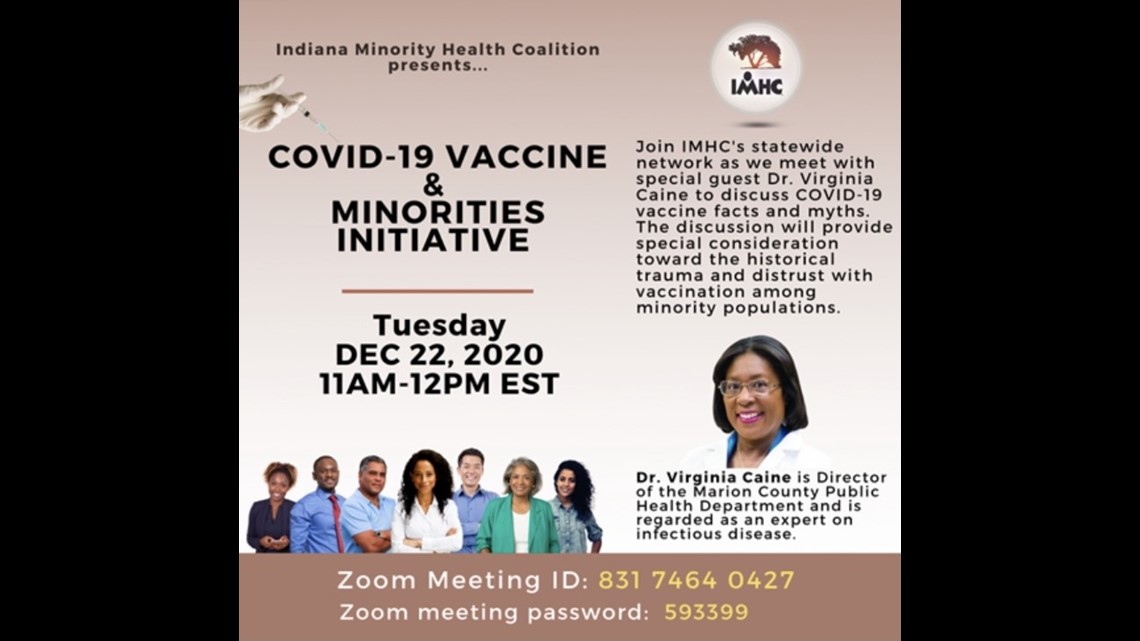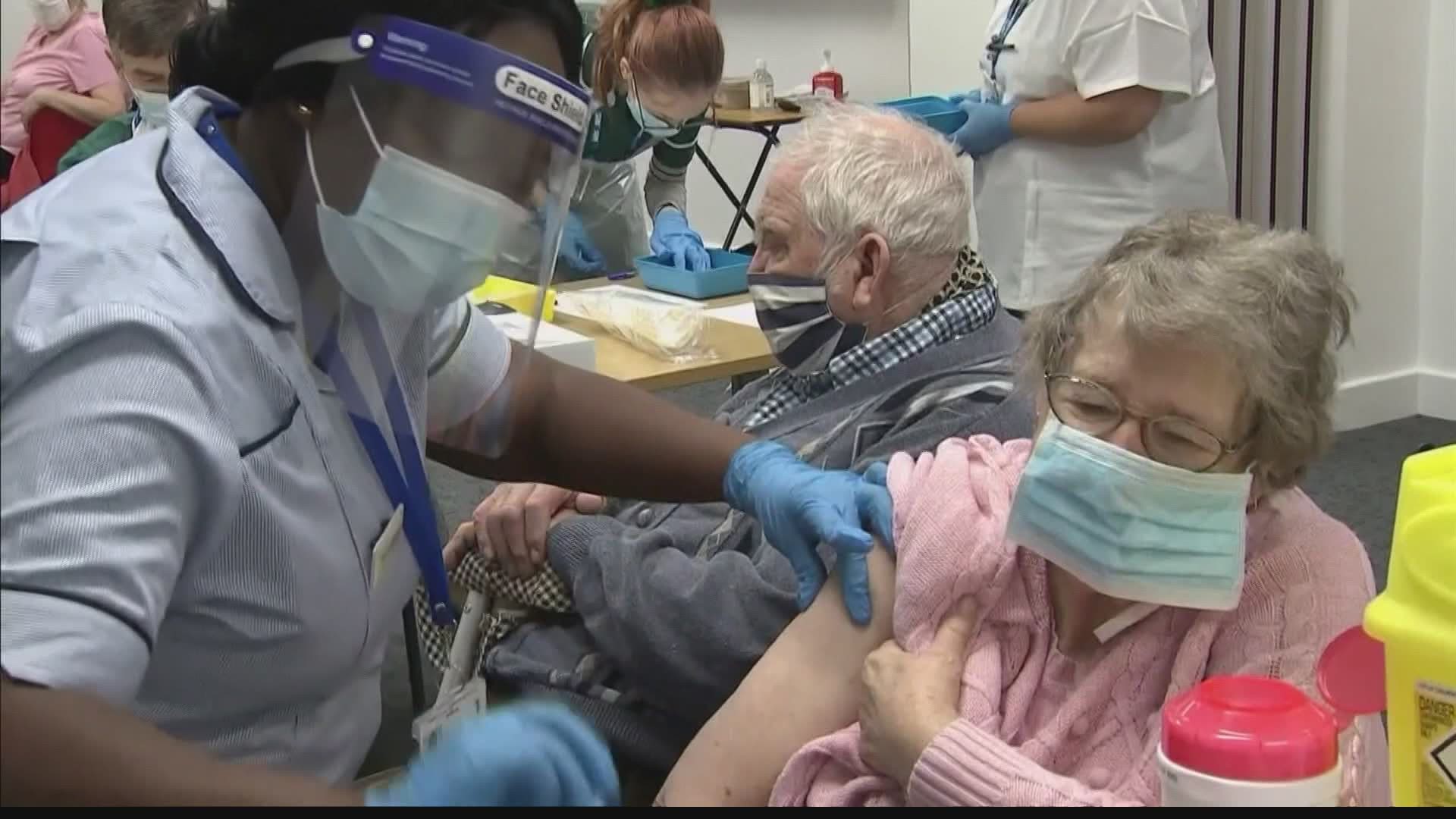INDIANAPOLIS — The first doses of the COVID-19 vaccine are rolling out but not everyone is sold on taking it.
The state is seeing a lot of uncertainty among minority Hoosiers who aren't sure about the safety of the vaccine.
But now there's a plan to bring people some peace of mind with a new outreach effort to get information to some of our most vulnerable communities.
Health care experts say nationwide, only 58 percent of African Americans and just 66 percent of Hispanics plan to take the COVID-19 vaccine, even though minority groups are dying at disproportionately high rates from the virus.
The concerns are rooted in historic failures like the Tuskegee experiment.
Marion County Health Director, Dr. Virginia Caine worked on a CDC Committee to create better boundaries for ethical research.
"We built in a lot of safeguards for research that's being done now as a result of the Tuskegee experiment," she told 13News.
But still, there's mistrust.
That's why the Indiana Minority Health Coalition is teaming up with Indiana Black Expo to send out statewide surveys "to ask racial and ethnic minority communities about their willingness to take a COVID vaccine."
The survey wants to know what African American and Hispanic communities are most concerned about, including issues like safety, effectiveness, cost or the number and types of shots recommended.
Just as important, the survey wants to know who are the trusted entities to provide that critical information.
"I think it's an important survey to have," Dr. Caine said. "So important to know where those gaps are, what kind of education people want."
As a member of the National Medical Association, where she serves as the Chair of Infectious Disease, Dr. Caine said the development of the COVID vaccine has had a greater level of minority involvement in the trial process.
"A lot of people were not aware that there was an African American female who was the lead scientist on the NIH vaccine technology platform," Caine said.
In addition, a number of minority health professionals and researchers participated by signing up to take the vaccine, like Dr. Valerie Fitzhugh of Rutgers University.
In a series of tweets, Dr. Fitzhugh, the Interim Chair of Pathology, Immunology and Laboratory Medicine wrote:
"My ancestors have been experimented on and have been hurt by doctors in the name of science. For me, this was the most profound reason to join a trial; I wanted to be able to show my community that the vaccine is safe, and that this is a step we can all take to help curb the spread of #COVID19."
Dr. Fitzhugh can't say whether she received the actual vaccine or the placebo. She said the worse side effects came following the second shot, where she experienced arm pain, a headache, chills and fever. She also disclosed she has underlying health conditions including high blood pressure and obesity.
"In order for us to endorse these vaccines, we have to make sure there's a significant number of people of color involved in the trials," Dr. Caine said, explaining why she supports it.
Now she'll join the Indiana Minority Health Coalition and other "health ambassadors" who will hold town hall meetings and radio call in shows to ensure those who need the vaccine most can make informed decisions on whether to take it.
Results from the survey are expected to be completed by the end of December.



